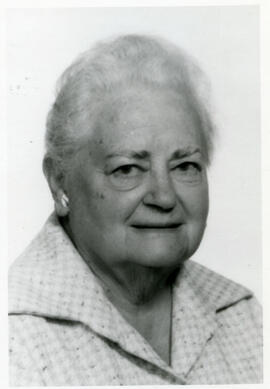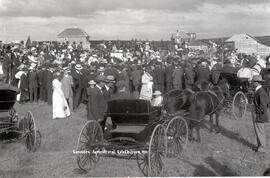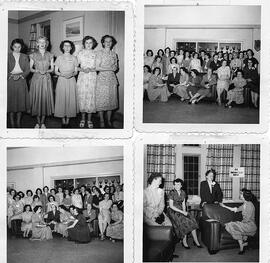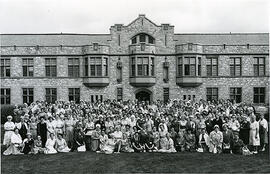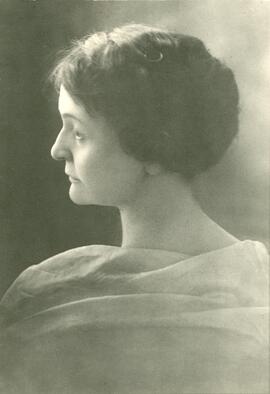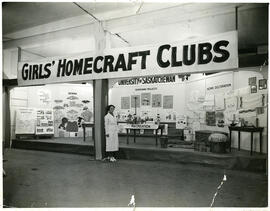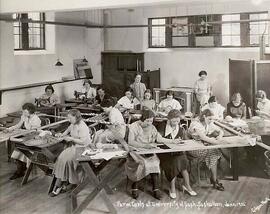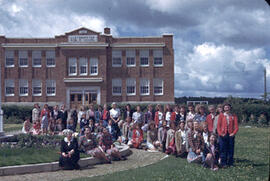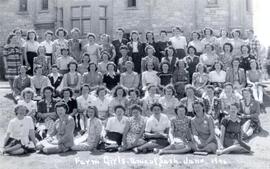Euphemia Jane Thomson - Portrait
- A-12494
- Item
- 1976
Head and shoulders image of Euphemia Jane Thomson, honourary Doctor of Laws degree recipient. Image possibly taken near time of presentation.
Bio/Historical Note: Euphemia Jane (Douglas) Thomson, BSc (HEc), was born in 1901 at Tantallon, Saskatchewan. Primary training was the one-roomed Holar School near Tantallon village school, then Moosomin Collegiate. Thomson received her BSc in Home Economics, magna cum laude, from the University of Manitoba in 1924. She taught for one season at the School of Agriculture, Olds, Alberta, before taking dietician training at St. Paul, Minnesota. In 1926 Thomson directed a pilot project in Winnipeg as the visiting nutritionist with the children from the out-patient department of the Children's Hospital. Euphemia married Wallace A. Thomson (Ag. 1919 Sask) in 1927. He taught physics at the University of Saskatchewan from 1920-1924. He was an instructor in physics at the University of Manitoba when they were married in 1927. The Thomsons operated a farm at Pense, Saskatchewan, and established themselves in the livestock industry - holsteins, shorthorns and sheep. Adult education was Thomson's life work. She pioneered the selection of varieties of vegetables suitable for home freezing; new techniques in sewing and needlework were studied in both formal and informal classes. Thomson served the Homemakers’ Club of Pense (now Women's Institute) since 1927 and held the office of president for ten of those years. Her activities in provincial affairs have gone far beyond the community of Pense. Thomson organized numerous 4-H clubs. Over the years, she judged the Saskatoon and Regina "A" fairs, all of the "B" fairs and many of the "C" fairs in Saskatchewan. Thomson was past president of the Saskatchewan Home Economics Association and an honourary life member of the Regina Branch. She was a member of the Committee for Revision of the High-school Home Economics Curriculum from 1946-1948. During World War II she was a member of the Regina Regional Wartime Price and Trade Board which monitored prices and rationings. Thomson co-authored the original resolution for the organization of a Canadian Association of Consumers now known as the Consumers Association of Canada. She also served as president of the Saskatchewan Consumers Association. Euphemia Thomson died in 1981 in Regina.

